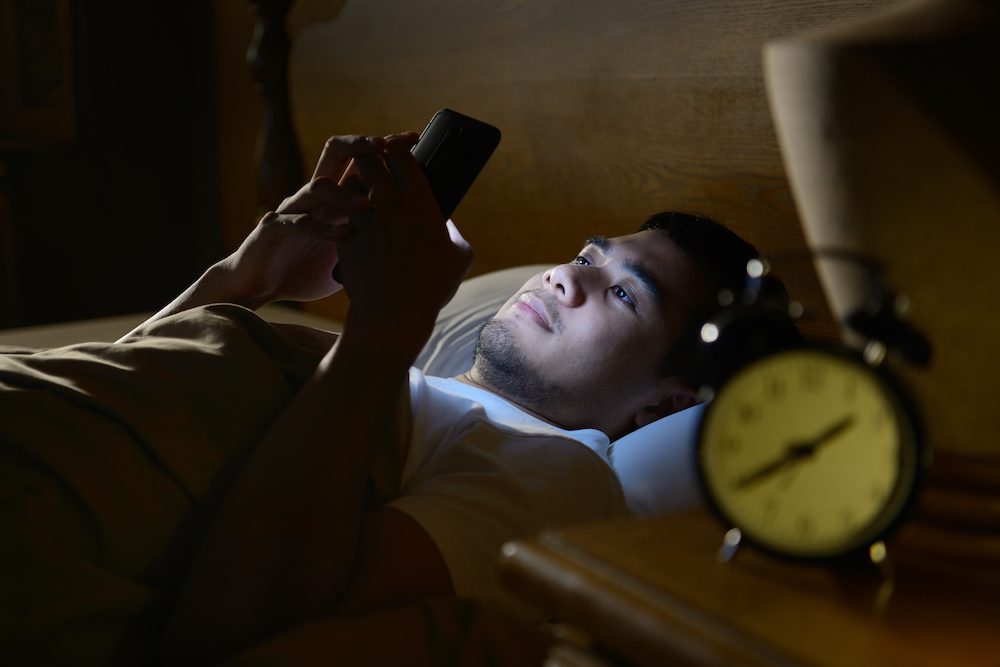At the end of a long day, you might want to collapse in front of the TV and watch an episode of your favorite show, but engaging in a regular bedtime ritual could actually help you sleep better. Settling down with a few relaxing activities, like drinking a cup of tea or reading a book, can tell your body it’s time to sleep.
And if you turn bedtime activities into a ritual—that is, if you do them every night around the same time—you will be all the more likely to get the rest you need.
What Is a Bedtime Ritual?
A bedtime ritual, also sometimes called a bedtime routine, is a set of activities that you perform nightly in preparation for going to bed. For adults, bedtime rituals typically last 30 minutes to an hour. For children, 20 to 45 minutes should be enough time to wind down.
Your bedtime ritual should include practices that help you relax, like having a cup of warm milk. It can also incorporate practical activities, like brushing your teeth or putting on pajamas. Additionally, your ritual might include activities that hold personal significance, like journaling or singing a child their favorite lullaby.
Whatever you choose to include in your ritual, the key is doing it consistently—ideally performing activities in the same order every night.
Why Are Bedtime Rituals Important?
A bedtime ritual is important not only because it prepares you for sleep but also because it helps establish healthy sleep habits, known as sleep hygiene. Behaviors surrounding sleep develop during childhood and often become fixed patterns by adulthood. If your current habits don’t support good sleep, a bedtime ritual can help you make necessary changes.
Bedtime rituals can also help reduce anxiety. Worry can make it hard to fall asleep at night, but for some people, anxiety at bedtime is common. Rituals can provide comfort by offering predictability and structure. Some rituals, such as journaling, might also alleviate anxiety by giving the writer a fresh perspective or sense of meaning.
Establishing a bedtime ritual can be helpful for anyone, but it can be particularly helpful for anyone who regularly struggles with sleep, including:
- People with sleep disorders
- Shift workers
- Children
Trouble Sleeping?
We can help. Tell us about your sleep to get a free Sleep Doctor score with recommendations for better sleep.
Nightly Rituals to Improve Your Sleep
Choosing a bedtime ritual can help you prepare for sleep. There are many activities that are well-suited for bedtime rituals. Consider trying several bedtime rituals and see what works best for you.
Taking a Warm Bath or Shower
A warm bath or shower can be a relaxing way to wind down before bed. Not only does the warm water have a calming effect, but the drop in body temperature that happens after bathing or showering can help you fall asleep faster. That’s because your body temperature naturally decreases at night, signaling that it’s time to sleep.
Spending Time With a Loved One
Spending time with a loved one, or even a pet, is another great way to wind down before sleep. Physically or emotionally connecting with someone you care about can help to alleviate stress and improve feelings of well-being, making it easier to fall asleep.
If you have a romantic partner, you might incorporate talking about your day, cuddling, or giving and receiving encouragement into your bedtime routine. If you are a caregiver for a child, reading stories, snuggling, and singing lullabies can provide an opportunity to bond as you prepare for bedtime.
Preparing for the Next Day
Stress can be a big contributor to sleep troubles. Planning and preparing for the next day can reduce stress by giving you less to keep track of. Try making a to-do list, laying out your clothes, or even packing your lunch for the next day. Just be sure to stay away from your phone and emails.
Journaling
Putting your thoughts and concerns in writing might be just what you need to quiet your mind at bedtime. Alternatively, you might keep a “gratitude journal,” a practice that can help you feel a stronger sense of well-being.
Meditating
Another way to prepare your mind and body for sleep is through meditation. There are many ways to practice meditation, most of which encourage awareness of the present moment without judgment.
Research has shown that meditation can reduce anxiety and improve sleep quality. It can also facilitate relaxation and feelings of tranquility and interconnectedness. If you are new to meditation, consider trying some of the many guided meditations available online, including those specifically focused on sleep.
Doing Yoga
Regular yoga practice has also been linked with improved sleep quality. Yoga combines movement, breathwork, and meditation into a practice with many benefits for physical and mental health. In addition to helping you relax, yoga can offer relief from anxiety, back pain, and depression—conditions known to interfere with sleep.
Before adding yoga to your bedtime ritual, make sure to talk to your doctor about whether this practice is right for you. Also, stick to a low-intensity version when practicing before bed.
Drinking a Warm Beverage
Many people swear by their nightly cup of herbal tea or warm milk as a way to relax before bed. Not only are warm beverages soothing, but many contain ingredients that can help facilitate sleep. Chamomile has calming properties, and milk contains tryptophan, an amino acid known to help people fall asleep and stay asleep. When choosing a beverage, make sure to avoid ones that contain caffeine.
Reading
Reading is a great activity to include in your bedtime routine. Some evidence indicates that people who read a book in bed before going to sleep have better sleep quality and fewer sleep disturbances than those who don’t read at bedtime. When choosing what to read, avoid violent or disturbing content that might induce anxiety and make it harder to fall asleep.
Listening to Relaxing Music
Because music has a strong influence on mood, people often turn to it as a sleep aid. Many find that music relaxes them and can also provide a welcome distraction from stressful thoughts that might otherwise impact sleep.
How to Create Your Own Bedtime Ritual
There’s no formula for the perfect bedtime ritual, so you might want to try several different activities before settling on a consistent routine. What’s important is figuring out what works for you. Start out with two or three activities that help you feel relaxed. Here are some tips that can help you get started.
- Unwind at the End of the Day: Take the hour before bedtime to power down and gently ease your body and mind into sleep. You can use this time to prepare for the day ahead, brush your teeth and take a warm bath or shower, and relax before going to bed.
- Choose a Consistent Time: Start your bedtime ritual about an hour before your regular bedtime. The goal is to align your bedtime ritual with your circadian rhythms, your natural sleep-wake cycle, so that you can go to bed when your body is ready to sleep.
- Focus on What Matters to You: Customize your bedtime ritual according to your needs and preferences. If you enjoy exercise and movement, try yoga or gentle stretching. If you find comfort in order, create a to-do list for the next day. If classical music soothes you, turn on some Bach or Mozart while you enjoy a bath.
- Avoid Activities Known to Interfere With Sleep: Your bedtime ritual should not include consuming caffeine or alcohol, smoking, or eating heavy meals—all of which can make it harder to sleep. And while many people enjoy watching a movie or checking their social media before bed, blue light from TVs, tablets, computers, or cell phones can interfere with sleep too.
- Prioritize Comfort: Whether your bedtime ritual takes place in bed or somewhere else, make sure your environment is relaxing. Wear comfortable clothes or pajamas, curl up under a cozy blanket, and keep the lights low. When the time comes to fall asleep, you’ll be ready.
References
Ask the Sleep Doctor
Have questions about sleep? Submit them here! We use your questions to help us decide topics for articles, videos, and newsletters. We try to answer as many questions as possible. You can also send us an email. Please note, we cannot provide specific medical advice, and always recommend you contact your doctor for any medical matters.




